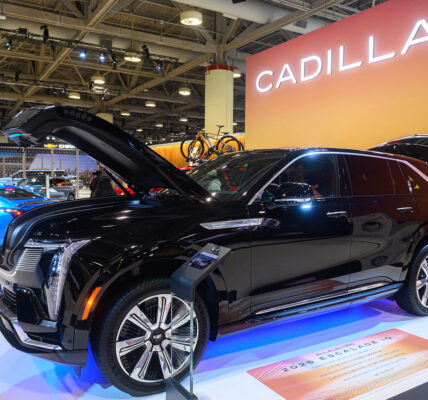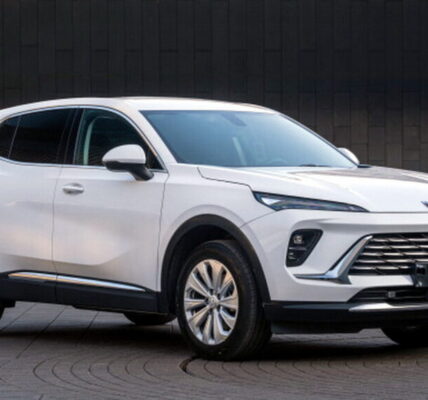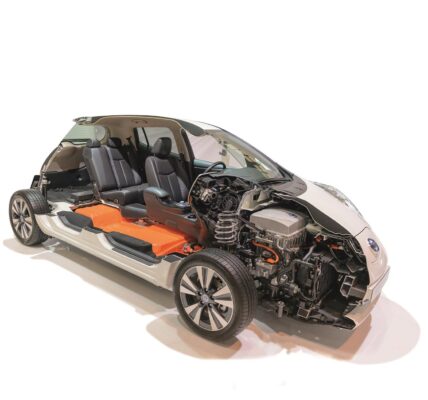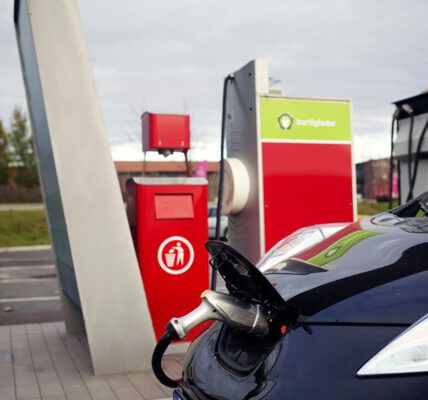The Burlington Electric Department has received a $4.8 million Federal Highway Administration grant to install 200 new electric vehicle charging ports across the city over the next six years.
The new ports will greatly expand the city’s electric vehicle charging capacity and support local, state and federal efforts to meet net zero climate goals, according to a Burlington Electric press release.
The department will add an additional $1.2 million from its 2022 Net Zero Energy revenue bond to the mix for a total of $6 million for the project, said Darren Springer, general manager of Burlington Electric.
At least 40% of the money will be used to build chargers accessible to underserved residents – including Black, Indigenous, people of color, new immigrants, renters and by multi-family housing – specifically in parts of the Old North End, downtown and the South End, Springer said.
The department is also asking the public to weigh in on preferred locations.
“Our team has done a lot of work modeling where we need additional charging in the city and what types of chargers we need in different locations,” Springer said. “But we really want to hear from the community as well about places where our residents feel like they would benefit from having more charging.”
BED plans to install 153 Level 2 and 47 Level 3 chargers at about 85 public spots in Burlington before 2030. Level 2 chargers typically take several hours to fully charge a car while Level 3 can top up in an hour, according to Springer. Burlington Electric currently has just 3 of the faster chargers and the grant will boost capacity to 50.
The new charger locations may include commercial corridors and neighborhood retail areas, municipal parks, community centers, schools, transportation hubs, parking facilities, tourist destinations and cultural sites, according to the release.
To minimize their footprint, the new Level 2 chargers will be mounted on posts and poles at on-street and off-street parking spots that have unrestricted public access. The new Level 3 fast chargers will likely be built at off-street parking lots that are open to the public, the release stated.
“We really want to make sure every part of the community is going to have access,” Springer said.
The grant signals potential future energy savings for residents with electric vehicles while promoting 100% renewable electricity and fueling the local economy, Springer said. With the rate for public chargers currently 21 cents per kilowatt-hour, topping up is projected to be cheaper per mile than gasoline, he added.
“So we really view this not only as a great climate opportunity, but very much an opportunity to invest in our local economy, keep dollars local and save people money,” he said. “It’s really a win for the economy locally and a win for the climate.”
The grant will not only help the city expand its EV charging capacity but “will help break down barriers to EV ownership for Burlington residents,” Mayor Emma Mulvaney-Stanak said in the release.
Burlington Electric first applied for the Federal Highway Administration grant program in 2022 but did not receive funding in the first round of awards, Springer said. On Tuesday, the department was notified of being a recipient of $4,890,821 in the second round of funding provided by the Charging and Fueling Infrastructure Program to build EV chargers throughout the city. Overall, about $2.5 billion will be distributed across the country over the next five years to pay for “publicly accessible EV charging and alternative fueling infrastructure in urban and rural communities where people live and work.”
Burlington is among 51 applicants – but the sole Vermont municipality – that received part of the more than $520 million available in this round of grant funding “to strategically deploy publicly accessible electric vehicle charging and alternative fueling infrastructure in the places people live and work,” according to the Highway Administration’s website.
The grants were created by the Bipartisan Infrastructure Law signed into law by President Joe Biden in November 2021. Vermont’s congressional delegation applauded the award for advancing Vermont’s climate and sustainability goals.
“It will make our transition to EV charging and electrification more equitable and accessible for all Vermonters who need a charge, as well as folks visiting Burlington,” U.S. Sen. Peter Welch, D-Vt. said in the press release.To start, Springer said residents can expect to see 5 new Level 3 chargers and 17 new Level 2 chargers in 2026, and 7 Level 3s and 22 Level 2s the year after.








